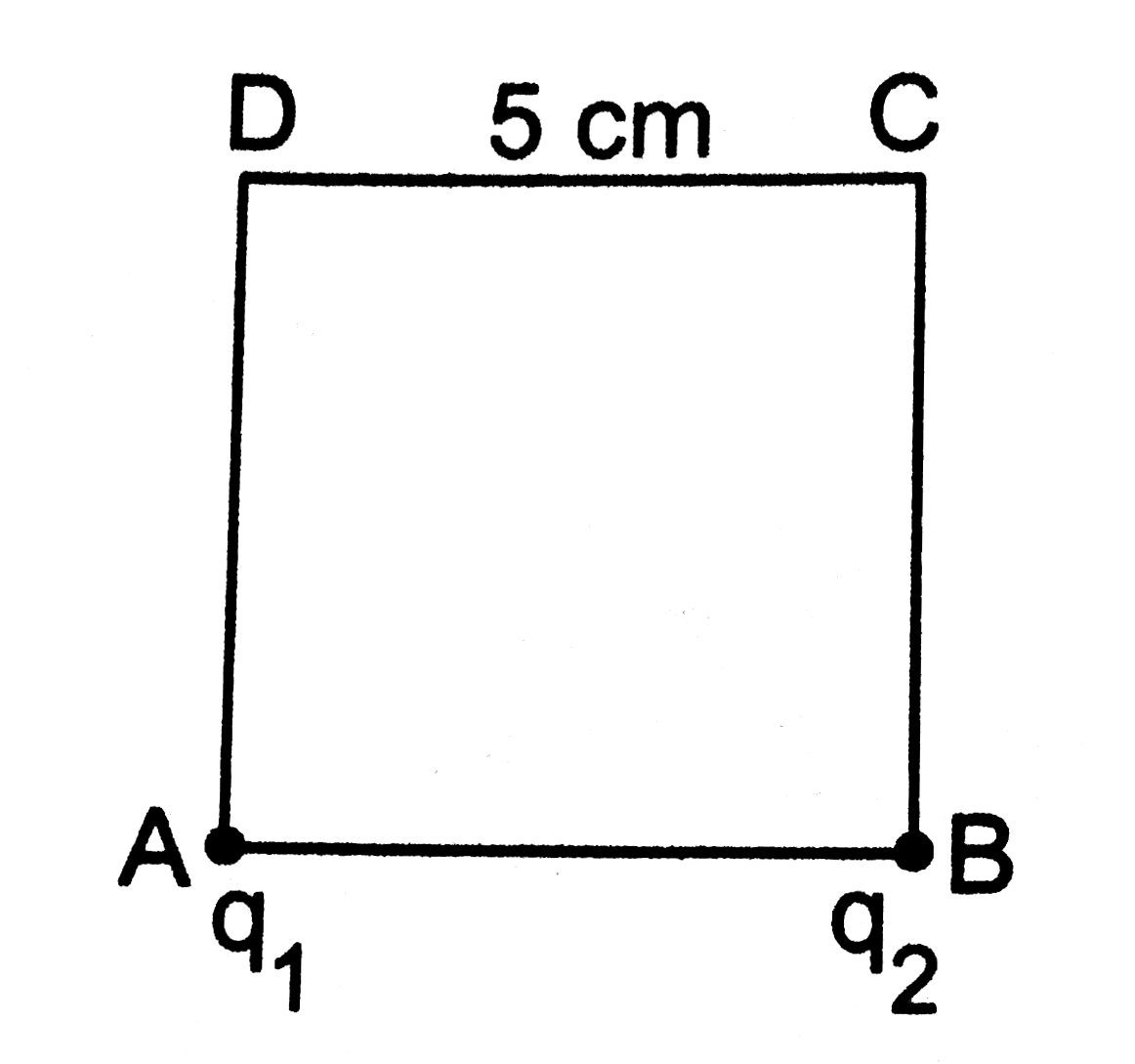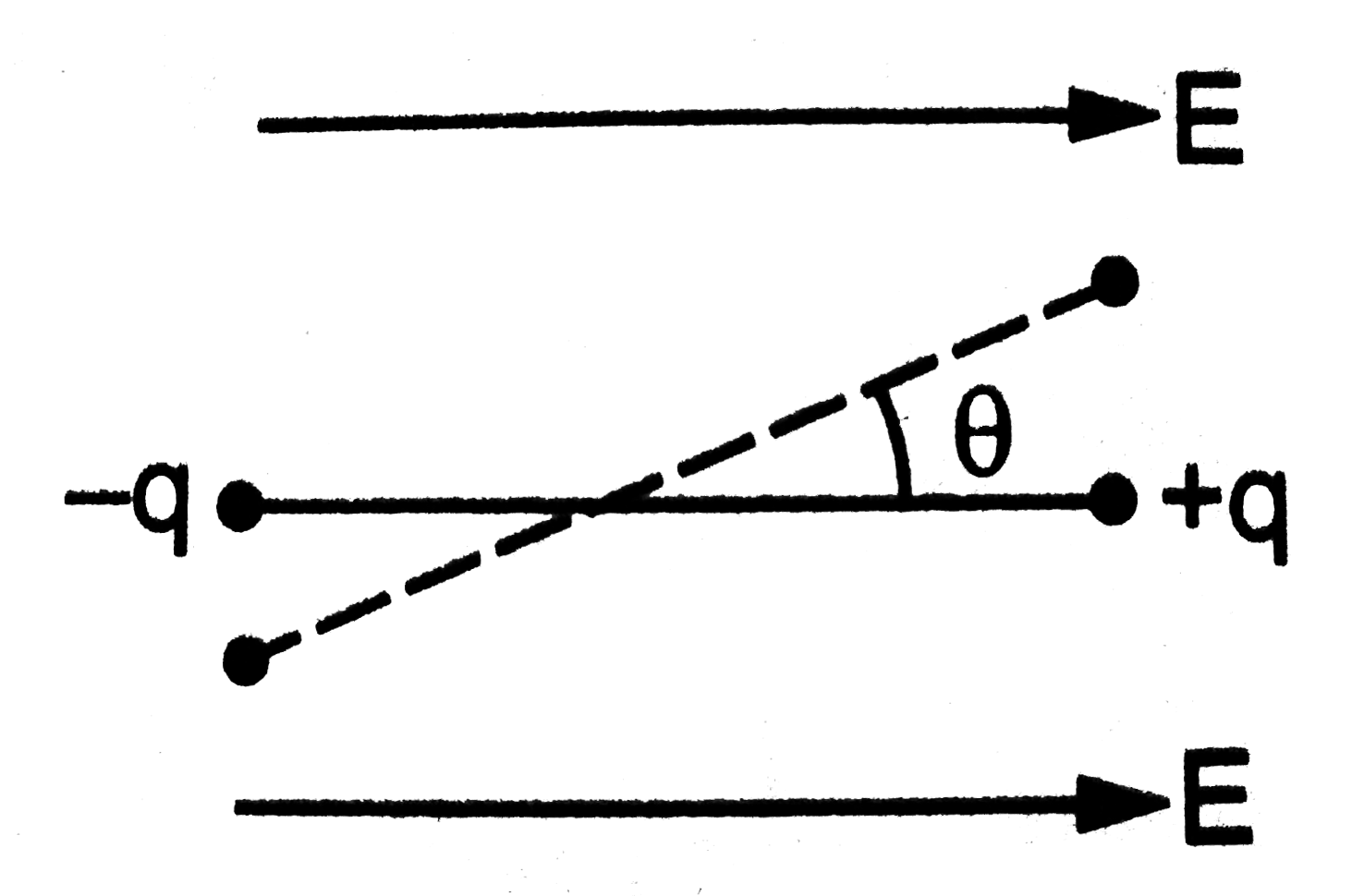Complete Solutions to worked out Examples of chapter ELECTRIC FIELD AND POTENTIAL of Class 12 book with complete answers and questions
| Class 12 | PHYSICS |
| Chapter | ELECTRIC FIELD AND POTENTIAL |
| HC VERMA | worked out Examples |
| Number Of Questions | 19 |
| Academic Year | 2023-24 |
Charges `5.0 xx 10^(-7) C , -2.5 xx 10^(-7) Cand 1.0 xx 10^(-7) C` are
held fixed at the three corners A, B, C of equilateral triangle of side 10cm respectively. Find the electric force on the charge at C due to the rest two.
View SolutionTwo particles A and B having charges ` 8.0 xx 10 ^(-6) C` and `-2.0 xx 10(-6) C` respectively are held fixed with a. separtion of 20cm. Where should a thired charged. particle be placed so that it dose not experience a net electric force?.
View SolutionThree equal charges, each having a magnitude of. ` 2.0 xx 10 ^ (-6) C`, are placed at the thre corners of a right. angled triangle of sides 3 cm, 4cm and 5 cm. find the force (in magnitude) on the charge at the right angled
View SolutionTwo small iron particles, each of mass 280 mg, are. placed at a distance 10 cm apart. If 0.01% of the electron. of one particle are transferred to the other, find the. electric force between them. Atomic weifht of iron is `56 g mol^(-)` and there are 26 electrons in each atom of iron.
View SolutionA charge Q is to be divided on two objects. What should be the values of the charges on the objects so that the force between the objects can be maximum?
View SolutionTwo particles, each having a mass of 5 g and charge. `1.0 xx 10^(-7)` C, stay in limiting quilibrium on a horizontal. table with a separation of 10 cm between them. The coefficient of friction between each partcle and the table. is the same. Find the value of this coefficient.
View SolutionA vertical electric field of magnitude `4.00xx 10^5 NC^(-1)`. just prevents a water droplet of mass `1.000xx10^(-4) kg`from. falling., find the charge on the droplet.
View SolutionThree charges, each equal to q, are placed at the three. corners of a square of side a . Find the electric field at. the fourth corner.
View SolutionA Charged particle of mass 1.0 g is suspended through a
. silk thread of length 40 cm in a horizantal electric field
. of `4.0 xx 10 ^4 NC ^(-1)` . If the particle stays aty a distance of
. 24 cm from the wall in equilibrium, find the charge on
. the particle.
View SolutionA particle a having a charge of `5.0 xx 10 ^(-7) C` is fixed in. a vertical wall. A second particle B of mass 100 g and. having equal charge is supended by a silk thread. of length 30 cm form the wall. The point of suspension is. 30 cm above the particle A. Find the angle of the thread. with the vertical when it stays in equilibrium.
View SolutionFour particles each having a charge q, are placed on the four vertices of a regular pentagon. The distance of each corner from the centre is a. Find the electric field at the centre of the pentagon.
View SolutionFind the electric field at a point P on the perpendicular bisector of a uniformly charged rod. The length of the rod is L, the charge on it is Q and the distance of P from the centre of the rod is a.
View SolutionA uniform electric field E is created between two parallel
., charged plates as shown in figure . An electron
. enters the field symmetrically between the plataes with a
. speed `v_0. The length of each plate is l. Find the angle of
. deviation of the path of the electron as it comes out
. of the field.

View SolutionIn a circuit, 10 C of charge is passed through a battery in a given time. The plates of the battery are maintained at a potential difference of 12 V. How much work is done by the battery?.
View Solutioncharges `2.0 xx 10^(-6) C` and `1.0 xx 10^(-6) C` are placed at. corners A and B of a squae of side 5.0cm as shown in. figure .how much work will be done against. the electric field in moving a charge of `1.0 xx 10^(-6) C from. C to D?.

View SolutionThe electric field in a region is given by `vecE = (A/x^3) hati.` Write a suitable SI unit for A. Write an expression for the potential in the region assuming the potential at infinity to be zero.
View SolutionThree point charges q, 2q and 8q are to be placed on a
. 9cm long straight line. Find the
. positions where the charges shouldbe placed such that the potential energy
. of this sysrem is minimum. In this situation, what is the
. electric field at the charge q due to the other two charges?
View SolutionAn HCl molecule has a dipole moment of `3.4xx 10(-30) Cm`
. Assuming that equal and opposite charges lie on the two
. atoms to froma dipole, what is the magnitude of this
. charge? The separation between the two atoms of HCl is
. `1.0x10(-10)m .
View Solutionshow an electric dipole formed by two
. particles fixed at the ends of a light rod of length l. The
. mass of each particle is m and the charges are -q and
. +q . The system is placed in such a way that the dipole
. axis is parallel to a uniform electric field E that exist
. in the region. The dipole is slightly rotated abut its
. centre and released. Show that for small angular
. displacement, the motion is anguler simple harmonic
. and find its time period.

View Solution
worked out Examples questions and complete solutions for chapter ELECTRIC FIELD AND POTENTIAL of HC VERMA PHYSICS (ENGLISH) of Class 12